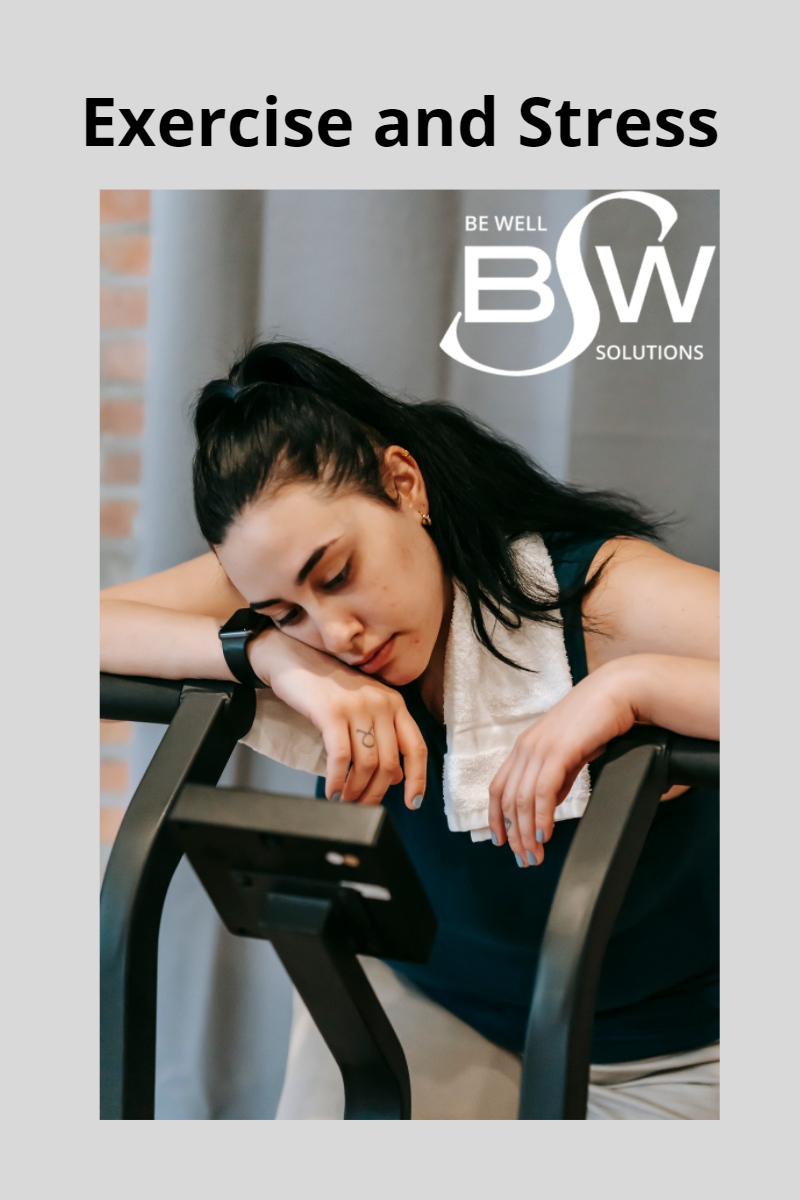
Our days can be full of stressful situations and feelings. No matter how much we’d like to get rid of stress altogether, we find that is virtually impossible. Instead, a more realistic approach is to manage how we react and respond to stress. Exercise has numerous benefits for the body, including stress relief. It increases the body’s production of endorphins, which are hormones that act as natural pain relievers and encourage feelings of pleasure (Mayo Clinic). Physical activity is a good way to give your mind a rest by focusing on the present moment. It’s known to help improve your mood by lowering feelings of depression and anxiety. When we’re feeling stressed, it’s easy to turn to unhealthy coping habits like extra snacking or drinking. Exercise provides a healthier choice for coping. Let’s look at several examples of exercises that can help you manage stress.
6 Types of Exercise to Help with Stress Relief
High Energy Exercise. High-Intensity Interval Training and Boxing are two examples of high-energy exercises. These can be great stress relievers when you need to blow off some steam. They can also get your heart rate up and release more feel-good endorphins. It’s a good idea to check with your doctor before beginning high-intensity workouts.
Walking & Hiking. Walking and hiking in the great outdoors can be a very good form of stress management. Fresh air along with the sights and sounds of nature can encourage mindfulness and help us focus on being present in the moment. Take some quiet time to think or call up a friend or family member for some good conversation while walking.
Yoga. Yoga combines strength, balance, flexibility, and deep breathing. This combination encourages a mind-body connection. Classes can be taken at a studio for a social component or taken virtually in the comfort of your own home. Intensity levels of classes can vary so you can choose between a relaxing or more challenging practice.
Stretching. A stretching routine will help sore muscles after a hard workout and relieve tension after long workdays. Spending your day in front of a computer screen or constantly on your feet can create tight and tense muscles. A quick stretch break is a great way to manage sore muscles that can cause annoying injuries and pounding headaches.
Breathing Exercises. We breathe all day long without thinking about it. But if we take a moment to think about inhaling and exhaling, it’s hard to focus on anything else. A few moments of deep breathing can provide a much-needed mind-break. There are many ways to practice deep breathing. One example is 4-7-8 Breathing, where you inhale and count to 4, hold your breath and count to 7, then exhale and count to 8. Repeat this cycle 5-10 times.
Meditation. Practice mental exercise to help manage stress. Meditation is a great way to relieve stress and can be accomplished in many different forms. Meditation is simply taking a moment to be in the present moment. It can help lower heart rate, blood pressure, and adrenaline levels. It’s also a great way to give your mind a break from dwelling on past situations or future worries. Many apps and videos are available for beginning meditation and range from guided meditations that focus on breath and visualization, to others that you can read or say aloud.
Don’t Let Your Stress Reliever Become Your Stressor
While exercise is a great form of stress relief, you don’t want it to become another stressor. It’s easy to get caught up in treating exercise like something on our “to-do” list for the day. Then before you know it, you’re feeling more overwhelmed trying to keep up. If you’re feeling this way, pause and take a moment to rethink your exercise. What could you adjust or change about your routine to make it more motivating? What kind of exercise would be the best stress reliever for your day? Stop and think about how you feel before and after exercise. If you need a rest day, take one! And then pick back up with your exercise tomorrow. Exercise is an important part of self-care. So, take time to listen to yourself and adapt your routine accordingly.
Always consult with your physician before starting a new exercise program.
Written by BWS Lead Health Coach- Kelly Schlather, BS, ASCM – CEP
Continue reading April 2022 Newsletter: Stress…More than just Frustrating?
